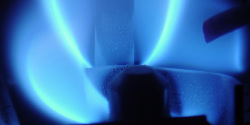

Public awareness of the dangers of carbon monoxide (CO) poisoning needs improving and more campaigns targeted at this group are required, according to research by the Gas Safety Trust.
The study was carried out by the Safe & Healthy Housing Unit at Warwick University, on behalf of the fuel safety charity, to evaluate the effectiveness of CO campaigns on public sector tenants.
Alarmingly, 47% of those interviewed did not know the telephone number for the emergency services and only 1 in 10 could identify the colour of a gas flame that could cause danger.
Campaigns on CO awareness and gas safety were carried out between phase 1 and phase 2 of the research. While the level of knowledge before the campaigns was found to be average, with around 70% positive responses, the research findings revealed no increase in CO awareness among public sector tenants as a result of the campaigns. As the level of awareness had not reached the 80% considered high enough for sufficient public health protection, the report suggests that the campaigns were not sufficiently effective.
The survey report recommends that more CO awareness campaigns are necessary, that they need to be targeted towards specific vulnerable groups, and their effectiveness should be monitored.
Gas Safety Trust board chair, Chris Bielby said: “As well as targeting campaigns for specific audiences, monitoring will help ensure that the CO campaigns are informing and influencing the intended audiences.
“There are a large number of bodies with responsibilities for, or interests in, preventing CO poisoning incidents. There is a need for co-ordination between housing associations and local authorities, Fire and Rescue Services, the Health and Safety Executive, and local health centres.”
He added that ideally, all public sector dwellings should be fitted with working CO detectors and residents made aware of them.
CO awareness week begins on 19 November, with events across the UK. The free CO Awareness smartphone app is now available to download, for Android devices only, to give people information to help protect themselves from the lethal effects of carbon monoxide.
If you'd like to keep up-to-date with the latest developments in the heating and plumbing industry, why not subscribe to our weekly newsletters? Just click the button below and you can ensure all the latest industry news and new product information lands in your inbox every week.